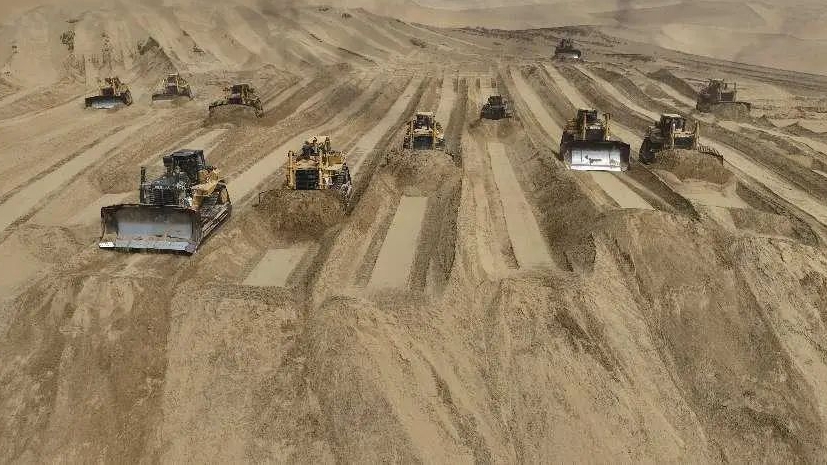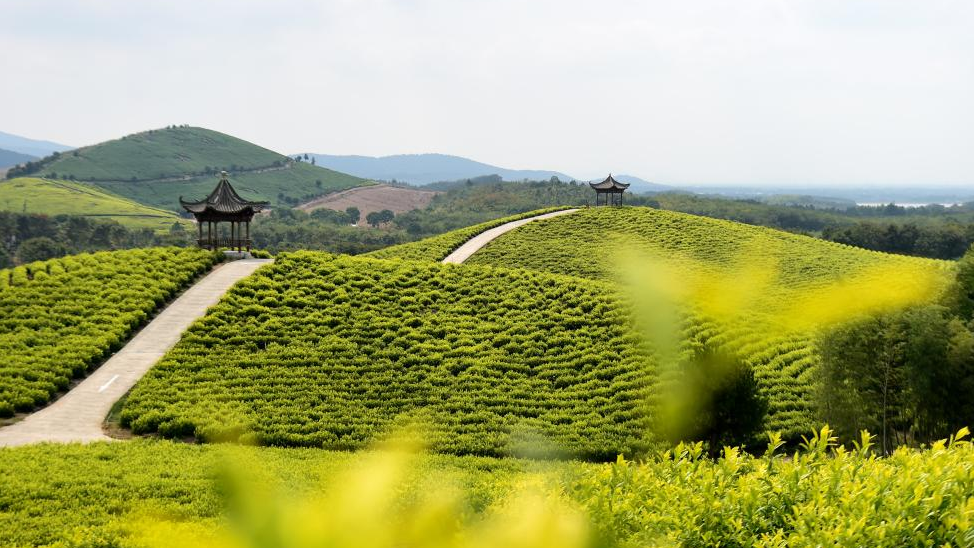Welded pipe production base turns green
TIANJIN, Sept. 29 (Xinhua) -- Hu Fengming, a villager from Jinghai District of north China's Tianjin Municipality, has raised fish and shrimp in a once-polluted seepage pit after it was subjected to careful treatment.
Jinghai is currently the largest welded pipe production base in the country, and its processing capacity of welded pipes accounts for nearly one-third of the total national output.
In the past, backward technology and weak awareness of environmental protection led to much pollution. Five years ago, Hu participated in the whole process of seepage pit treatment.
Water filtration, desilting... Through continuous treatment, the polluted pit has become clear. The results of water quality appraisal show that the breeding standards have been met.
"The increasingly lush trees at the shrimp pond are proof," Hu said.
This is an epitome of the green transformation of Hu's hometown Jinghai.
In the late 1970s, Jinghai began to take the lead nationwide in exploring the road of rural industrialization. Ten years later, the iron and steel industry had grown from scratch to a level where it even caught the attention of overseas media.
In 2008, Jinghai's annual steel processing capacity reached 15 million tonnes. But there was the cost of environmental pollution. Workers recalled that the surrounding rivers were yellow-brown and the sky overhead was gray.
In 2017, central government authorities pointed out the problems that occurred in Jinghai, and the pollution issues also caught the attention of environmental protection organizations.
Authorities in Jinghai at that stage did not see any reason to delay change.
"If we do a good job in environmental protection, we will be the first beneficiary, and if not then we will be the first victims," said Yang Meng, deputy general manager of the first branch company of Tianjin Youfa Steel Pipe Group Co., Ltd., which has been rooted in Jinghai for more than two decades.
The enterprise began to use natural gas as energy in 2013, and every year since then, it has invested much in environmental treatment and emissions reduction.
"In the past, in the most polluted galvanizing workshop, workers could still be affected by the acid mist even if they wore thick masks. But now, there is almost no smell," said Zhu Dengke, who is in charge of the green energy development of one of the enterprise's branches.
Since 2017, Jinghai has shut down and banned more than 2,100 enterprises involved in pollution.
According to official data, from 2016 to 2020, the financial budgetary input of environmental protection in Jinghai increased year by year, with a total investment of more than 3.5 billion yuan (about 492 million U.S. dollars).
Photos
Related Stories
- China a greener country after decade-long ecological efforts
- "Millennium ancient ferry" in N China's Tianjin sees prospering development of green tourism
- China calls for more green efforts from central SOEs
- Chinese vice premier stresses green, high-quality development
- Green is gold, how Xi's thought fosters China's green transformation
Copyright © 2022 People's Daily Online. All Rights Reserved.









